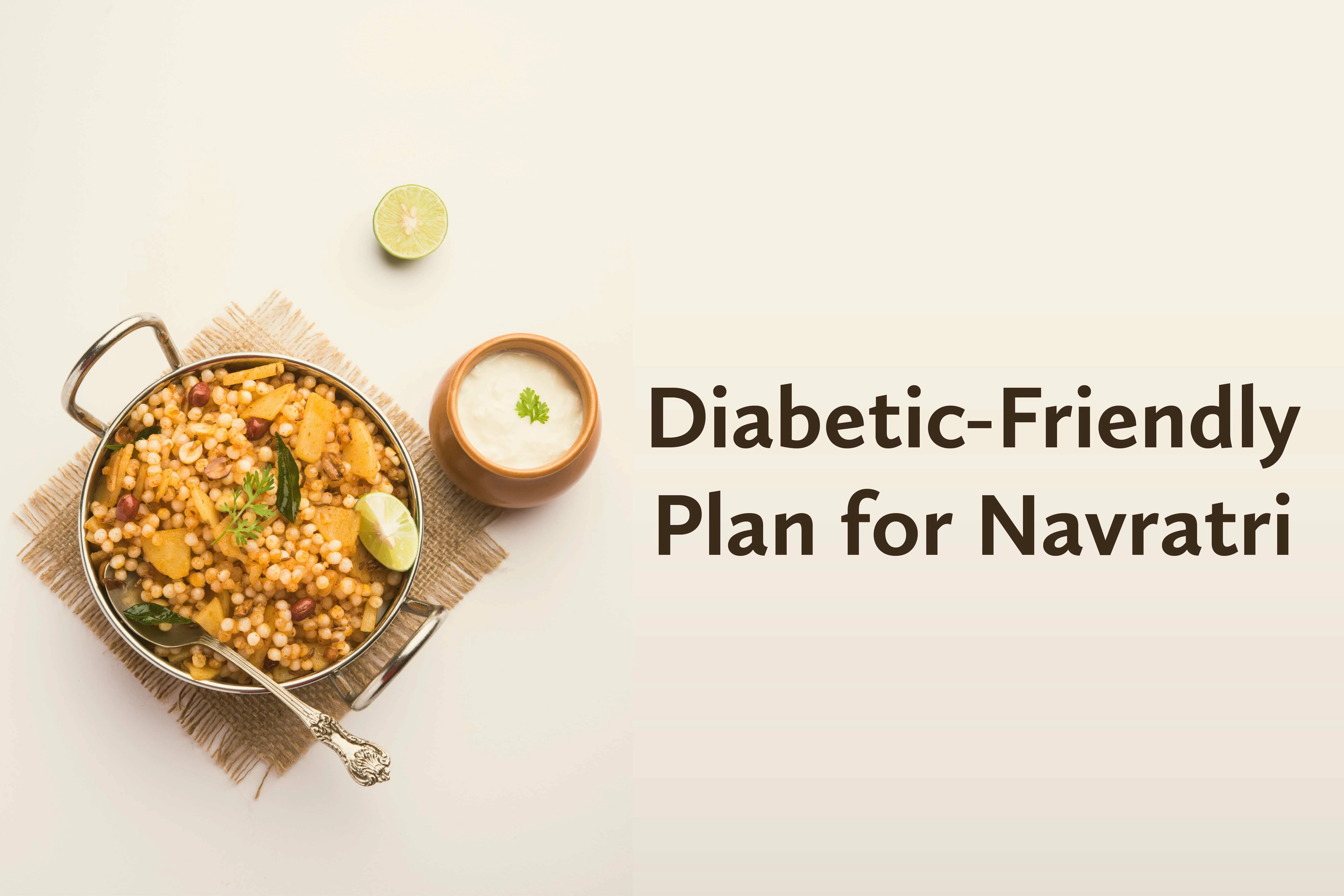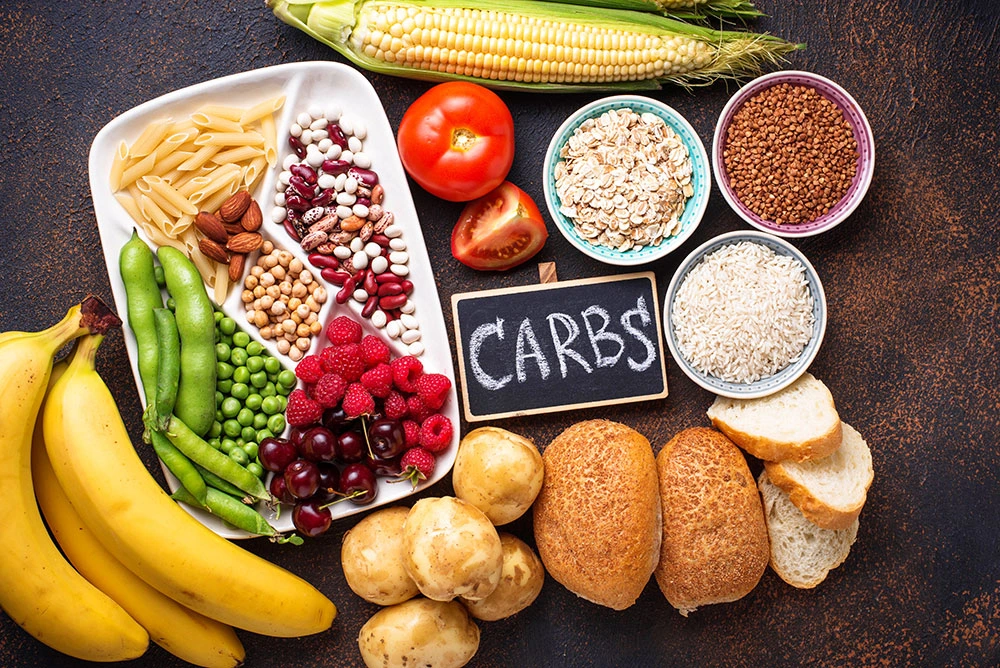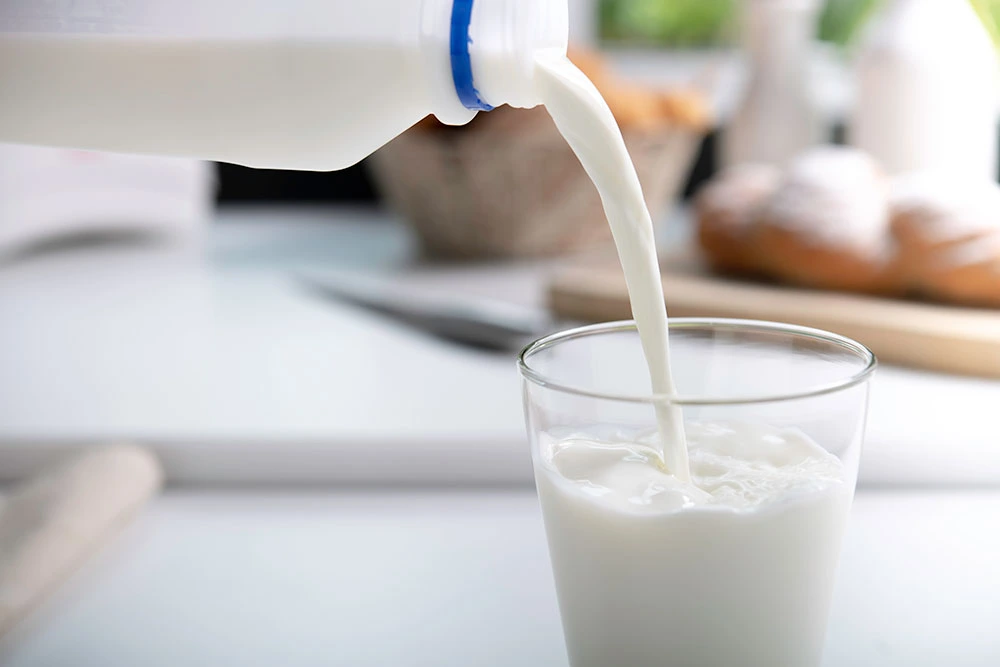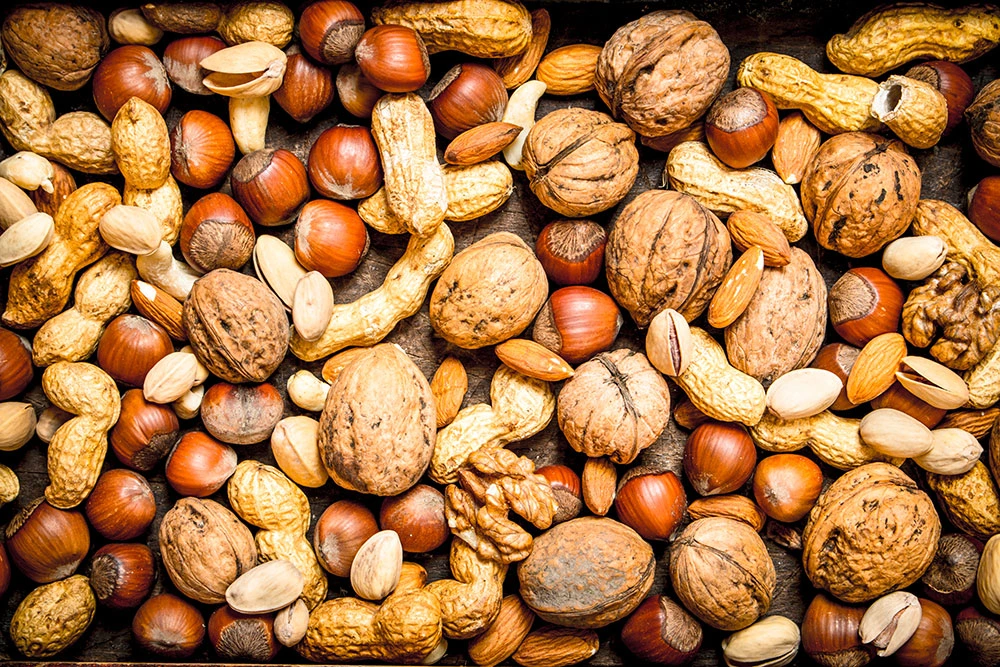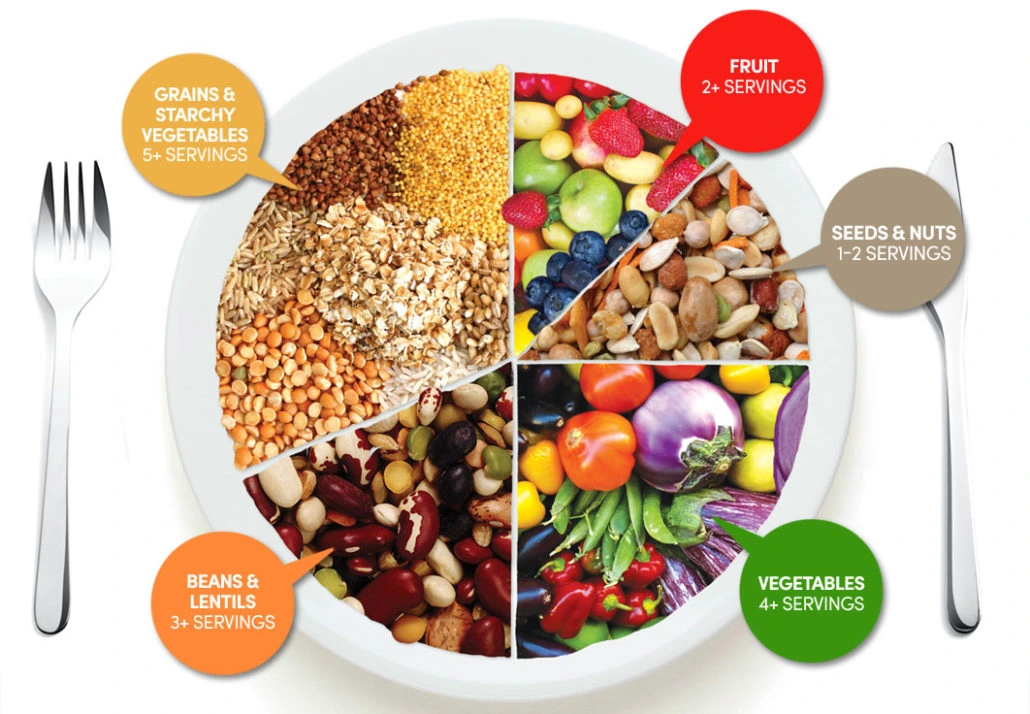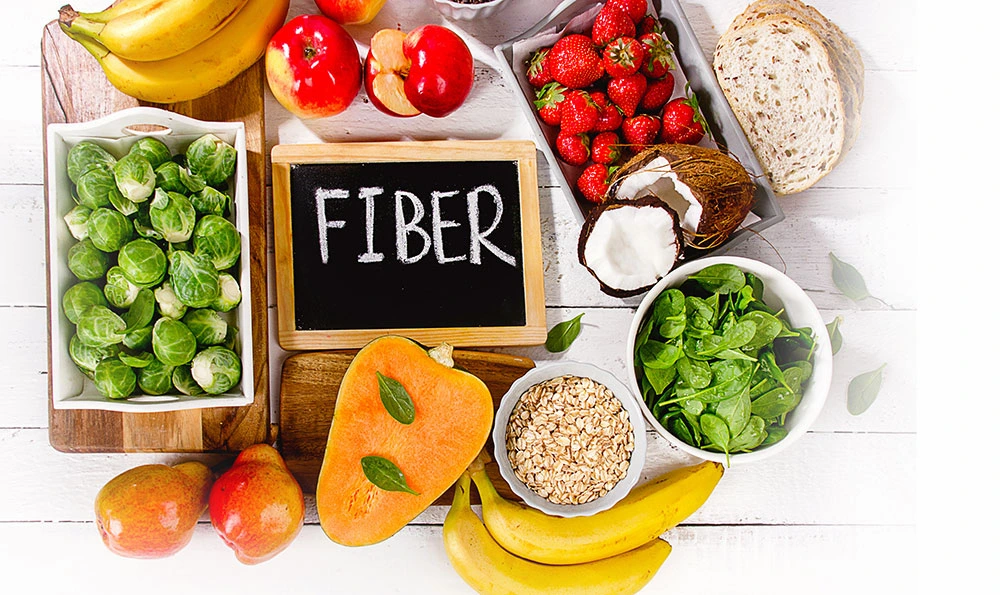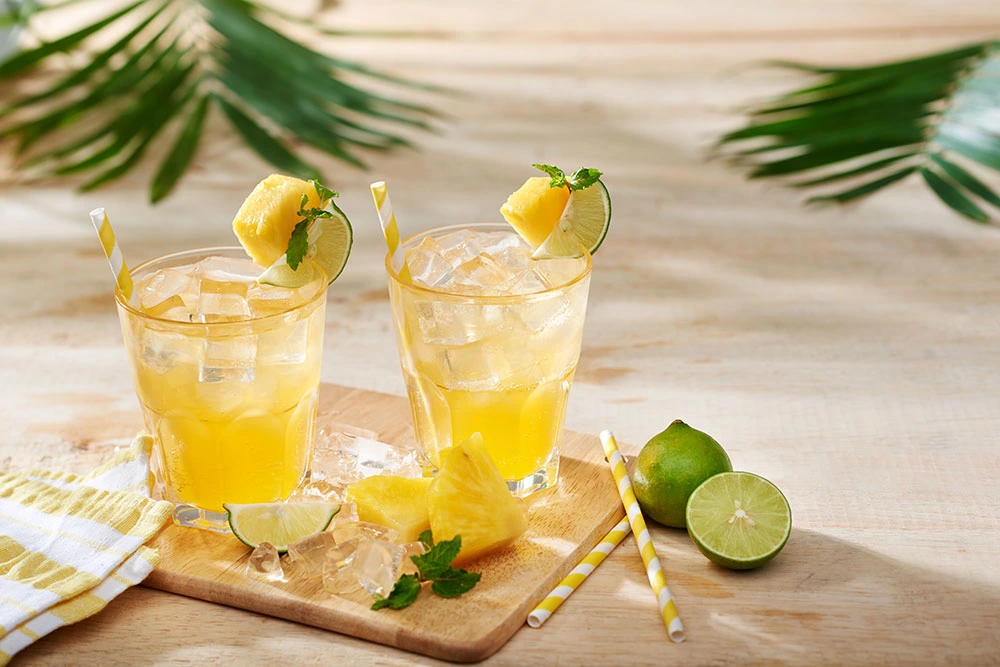Last updated on November 21st, 2022
Now, Navratri celebrations will be in full sway. Celebration of this festival occurs in diverse ways. That too, in several parts of India. Fasting during Navratri is performed to pacify Goddess Durga. And, to seek her blessings. Excluding the sacred aspect of Navratri, it aids in cleanse the body. This occurs by eliminating excess toxins. Read this blog to know about the Navratri diet for diabetic patients.
People have been fasting for these seven days for most of their lives, but certain medical conditions, particularly diabetes, may transform people’s plans. Diabetes care during fasting is similar to walking a tightrope. And if prescribed diabetes drugs are stopped without the doctor’s consent, this may add to the problem.
Also, a diabetes diagnosis doesn’t indicate that the person has to give up this essential part of his or her culture. A person with diabetes can still keep Navratri fasts. He or she can do proper planning and prepare themselves in advance. So that they can enjoy a safe and flourishing festival.
How Does Navratri Fast May Add to Diabetes Issue?
The crucial goal of diabetes care is to keep the blood sugar level within the normal limit. This evades the ups and downs to a feasible extent. This job becomes trickier when feasting follows fasting during these 7 days. Luckily, a doctor can aid a person in navigating the celebrations while staying fit. Also, fasting is useful for digestion. And, supports physiological rest to digestive organs. As the saved energy can be used for healing and self-repairing.
Also Read: Diabetes and Antibiotics
An Ideal Diet Plan During Navratri Fasting
Meal pattern
A diabetes educator, dietician, or healthcare doctor must understand the pattern of fasting states. And, that too for ideal meal planning during Navratri days. Also, consider the type of food items during fasts. During Navratris, there is no fixed rule about eating patterns. They vary from community to community. This allows for diverse types of foods, and diverse cooking practices. That too with diverse timings and frequencies. Some individuals consume only one or two major meals. While, others consume fruits, veggies, or dairy products at repeated intervals.
Also Read: Diabetic Diet Plan Indian
Meal composition
Navratri plate must include all the major food types. The point to remember is a wise and judicious distribution of carbs during the day. Complex carbs, as well as low caloric fluids or beverages, have a low GI than simple carbs and concentrated beverages. Thus, they must be chosen. Sufficient fluid consumption helps in:
- hydrating the body, and
- preventing dehydration.
During the non-fasting duration, an optimal physical activity (for example, 15 to 20 minutes walk) and after that major meal (at fasting end) appears beneficial.
Also Read: Blood Sugar Range
Carbs
Add an optimally essential serving of cereals to the plate of grains. This includes the food type adding to the major carb content. These grains are safe during fasts. They offer enough sugar and energy for the body organs to work appropriately. It is vital to deliver about 50-60% of the total kilocalories daily from carbs.
Foods with higher GI unfavourably have an effect on body weight. Also, they enhance glucose levels, and insulin resistance. And, also enhance the production of free fatty acids in the late postprandial phase. During fasting preparations, add cereals into other food groups. These are veggies, dietary fiber as well as fewer quantities of oils. They lower the glycemic load of the diet plans.
Proteins
About 15% to 20% of the total energy must be met from the protein so that the daily dietary allowances can be met. These allowances differ from individual to individual. Together with the escaping particular grains, garlic, and onion, a significant food type of legumes and pulses or other non-veggie sources of protein are time and again withdrawn during fasts as well as religious occasions. These are supposed to quench the adjacent negative energies.
Range of low-fat dairy products including curd, milk, paneer as well as preparations including sugarless shakes, naturally flavored milk like Indian spices, mattha, vegetable raita, lassi, chaach, and serving of nuts must be added as an excellent protein source in the diet of people during fasting.
Also Read: Best Diabetes Reversal Program of India
Fat
There must be a total contribution of less than 30% of calories from the fat on a daily basis. Research studies support the suggestion of a considerable decrease of glycated hemoglobin (HbA1c) with lower fat, moderate carb, as well as higher fiber diet in adults having poor glycemic regulation. Thus, it is suggested to incorporate a similar composition of meals all through the fasting phase. Additionally, the particular fatty acid or fatty acid composition of the fats and oils plays a key role in the meal plans of diabetics. It is ideal to incorporate less than 10% cholesterol and saturated fats to less than 300 mg per day.
Additional scientific research studies may affirm that reducing saturated fatty acids or enhancing monounsaturated fatty acids might augment the activity of glucagon peptide-1, thus lowering down postprandial transglucosidase. Moreover, omega-3 fatty acids (flaxseeds being the outstanding sources, normally allowed during fasting) have been seen to be related to a decrease in risk of heart problems biomarkers in diabetes type 2. Nuts are an optimum meal during fasting being an excellent protein source, micronutrients, unsaturated fatty acids as well as their replacement with starch have been seen to improve serum lipids and HbA1c.
Vitamins and Minerals
The addition of fruits and veggies augment the concentration of plasma carotenoids as well as Vitamin C to deliver antioxidants and phytocompounds. The glycemic load gets reduced when fibrous veggies are combined with high carb-high fat meals. This also reduces the levels of postprandial glucose. Whole fruits (pulp should be intact), fresh veggies, and fiber can be opted instead of concentrated juices.
Whole fruits, as well as leafy greens, are low in energy density; high fiber, low glycemic load, as well as high micronutrients, and these exert positive effects on the total and LDL cholesterol levels. Try salads, fruit chaat, custards, vegetable smoothies, vegetable soups as in-between minor meals rather than juices or sugary preparations.
Fiber
Advantageous ingestion of about 25 grams per 1000 kcal or 30 to 40 grams of fiber daily must be maintained in their days of fasting. During these days, the diet pattern, as well as meals, bears a majority of adaptations required for sufficient blood sugar control.
Plenty of Water and Fluids
It is good to add low-calorie drinks like green tea, lemon water, lassi, chaach, mattha, pudina water, etc. for quenching thirst, particularly during summers. It’s better to avoid sugary preparations during the days of fasting.
Detailed “Navratri Satvik Bhojan (Diet) Plan for Diabetics”
This is a list of the top 10 favorite or mouth-watering Navratri special diet inclusions for people with diabetes:
- Apple Smoothie or some Vegetable Smoothie: Apple smoothie is something too luscious. Apples are rich in nutrients. These are calcium, protein, vitamins A, C, potassium, iron, and fiber. Wow, this fruit smoothie can be more interesting. Add leafy greens to it. And, they become good for diabetics in these days of fasting.
- Singhara or Kuttu Flour Tikki: This form of atta contains a good amount of potassium and low amounts of sodium. This is helpful for water retention in the body. Mix this atta with water and add some boiled lauki to it. This makes delicious tikkis using a little olive oil. Enjoy this special Navratri snack as an evening meal with a cup of tea. Also, make green chutney using pudina to spice up the flavor.
- Pumpkin Cutlets: Pumpkin is the mostly consumed veggie during Navratri days. Add them in kuttu rotis as well. Also, one can try pumpkin cutlets for a pleasant twist to the fasting foods. Peel off the skin from the pumpkin. And, cut them into small pieces. And cook them in a pressure cooker until the vegetable turns soft and mushy.
- Roasted Makhana or Nuts: Makhana is the all-time favorite and popular snack during the festival. Use nuts such as almonds, peanuts, or makhanas as snack options for diabetics.
- Kuttu or Singhara Flour Roti with veggies like lauki or touri: Kuttu atta contains dietary fiber, protein, zinc, calcium, iron, vitamin B. Moreover, it is also very useful for a person with diabetes.
- Paneer Bhruji: Paneer packs nutrients like calcium, protein, and linoleic acid. It is useful in weight loss and also good for diabetics. Consume paneer (bhurji or baked tikka form) as per the person’s choice. It also packs vitamin A and is trans-fat-free.
- Fruit Raita: This is the best item containing vitamins, and minerals (calcium). It offers loads of energy during fasting days. It is also good for maintaining sugar levels.
- Makhana Kheer: While fasting, people crave something sweet. To control or avoid this craving during fasting, makhana kheer is the best option. It comprises all the health benefits. Prepare it using milk, makhana, stevia, and dry fruits.
- Fruit: Just great for overall health. Also, diabetic patients can consume fruits in these days. These are apple, jamun, guava, or papaya. Add not more than two fruits to a meal.
Also Read: Diabetic 2000 Calorie Diet Plan
Navratri Diet Chart for Diabetic Patients
| Time | Menu |
| Early Morning (6-7 am) | 1 glass lukewarm water |
| Break Fast (9-10 am) | Tea (no sugar) or milk (skimmed) / an apple smoothie (200ml ) +
Singara chilla/ kuttu chilla with some paneer or any vegetable stuffing |
| Mid-Morning (11-12 noon) | One seasonal fruit (orange/guava/jamun/water chestnuts) or
A glass of chaach or cold coffee with a handful of nuts |
| Lunch (1-2 pm) | Loki vegetable (1 bowl) or touri/pumpkin +
singara/kuttu roti (one or two) curd or vegetable raita (1 bowl) |
| Evening(4-5 pm) | Tea /coffee/milk with
some makhana or peanuts |
| Evening (6-7 pm) | Homemade Tomato soup /apple smoothie / coconut water/ green tea (150ml) |
| Dinner
(8-9 pm) |
1-2 singara/kuttu chilla with some green chutney + curd or any vegetable or
1 glass milk with fruits |
Also, Watch
Some Special Diet Tips For Diabetics During Navratri
These all mouth-watering recipes for diabetics would satisfy your hunger. Gratifying the cravings is a must; however, taking care of health also plays a key role.
Some tips to manage glucose levels during Navaratri:
- For diabetics, it is not suggested to take long breaks. They can consume some food after short intervals. And, doing so blood glucose levels remain within limits.
- A person must check glucose levels a few times during the day.
- Diabetics can consume slow absorbing foods, with low GI, prior to initiating the fast. These food types keep sugar levels more even during the fast.
- During fasting days, if a person feels less active, avoid resorting to excess consumption of tea or coffee. In its place, it’s good to have enough water and sugar-free drinks such as lemonade, buttermilk, etc all through the day.
- Diabetic patients must completely refrain from potatoes or other starchy foods during these days.
- Diabetic patients who are using insulin injections may need some dose adjustments as the need for insulin can decrease to up to 4%.
- Follow a diet plan to stay energetic while fasting.
- Choosing such food groups that help a person in filling the stomach besides maintaining the sugar levels even more during the fast course. They may include fruits, veggies, or salads.
- For preventing dehydration, consume enough sugar-free and decaffeinated drinks (water, chaach, or lemon water).
Summary
Diabetes care is easy and less complicated while Navratri fasts. It is about being flexible. Understanding the signs of high and low blood sugar levels is a must. Always keep water and a snack along in case of emergency. A doctor’s help is a must when needed. It’s better to avoid temptations and search for healthy options. With correct attitude and navratri diet planning, diabetes would never keep you from enjoying the delicacies of festivities. Still, you can contribute to the high spirits of celebration. Do not step back!
FAQs:
At what time is the glucose level highest in the body?
In the early morning hours, generally between 3 am and 8 am, a person’s body begins to churn out the stored sugar and prepares the body for the next day.
Which fruits are not safe for a diabetic?
Fruits high in sugar can be pineapple, watermelon, dried dates, and overly ripe bananas.
How many hours a diabetic can fast?
The most common form of fasting is called 16:8 method. This includes fasting for 16 hours and lowering the eating window to minimum of 8 hours. For instance, an individual may consume dinner at around 7 pm, breakfast can be skipped the next day, and then lunch can be taken at around 11 am.
Is it good to fast when the glucose levels are high?
The ADA doesn’t suggest fasting as an approach for diabetes care. The association states lifestyle alterations like good physical activity along with medical nutrition therapy are important key factors for diabetes control as well as weight management.
References:
- https://www.ncbi.nlm.nih.gov/pmc/articles/PMC5240068/
- https://www.abbott.in/corpnewsroom/diabetes-care/guide-to-diabetes-management-during-navratri-fasting.html
Last Updated on by Dr. Damanjit Duggal
Disclaimer
This site provides educational content; however, it is not a substitute for professional medical guidance. Readers should consult their healthcare professional for personalised guidance. We work hard to provide accurate and helpful information. Your well-being is important to us, and we value your feedback. To learn more, visit our editorial policy page for details on our content guidelines and the content creation process.

 English
English
